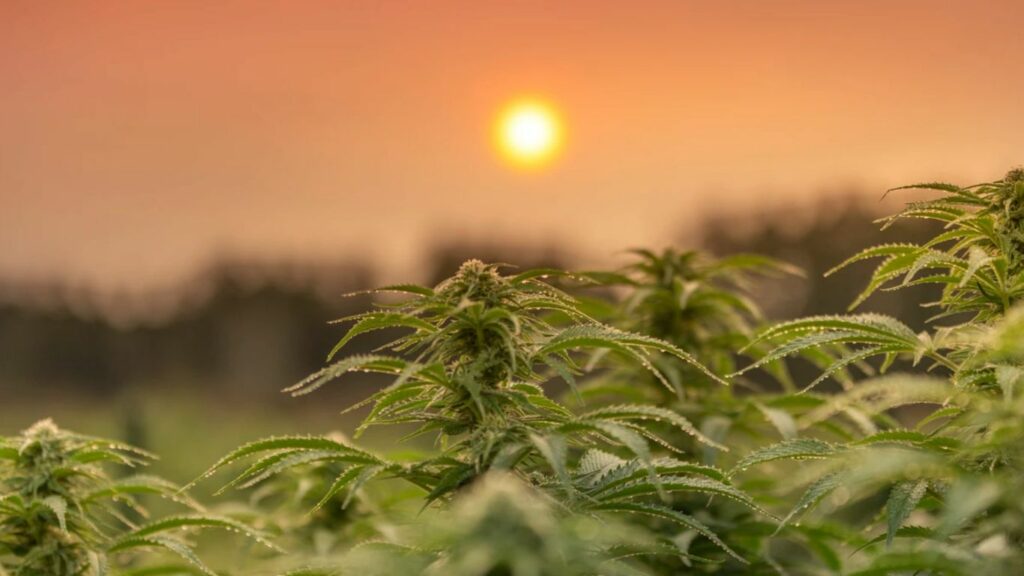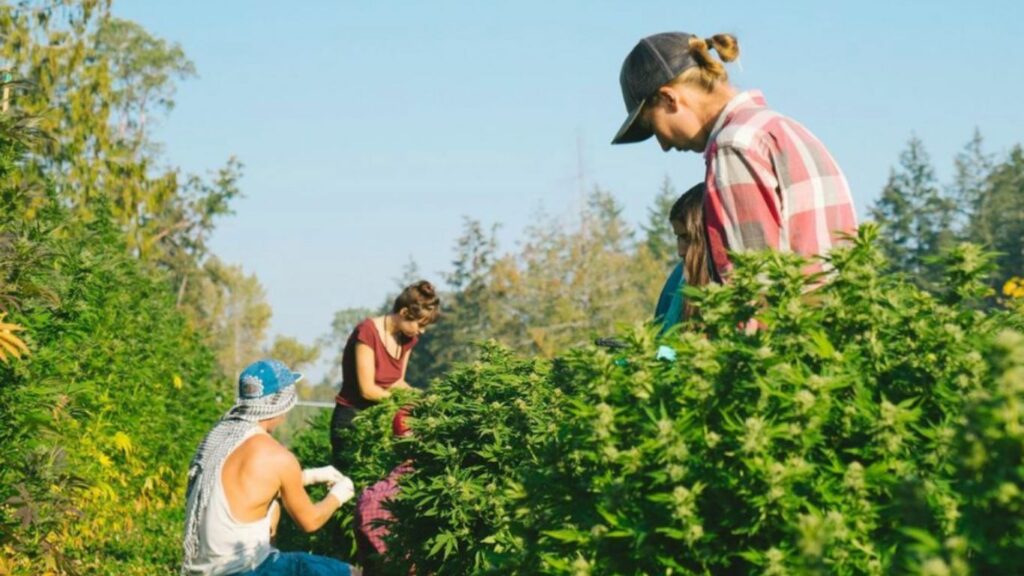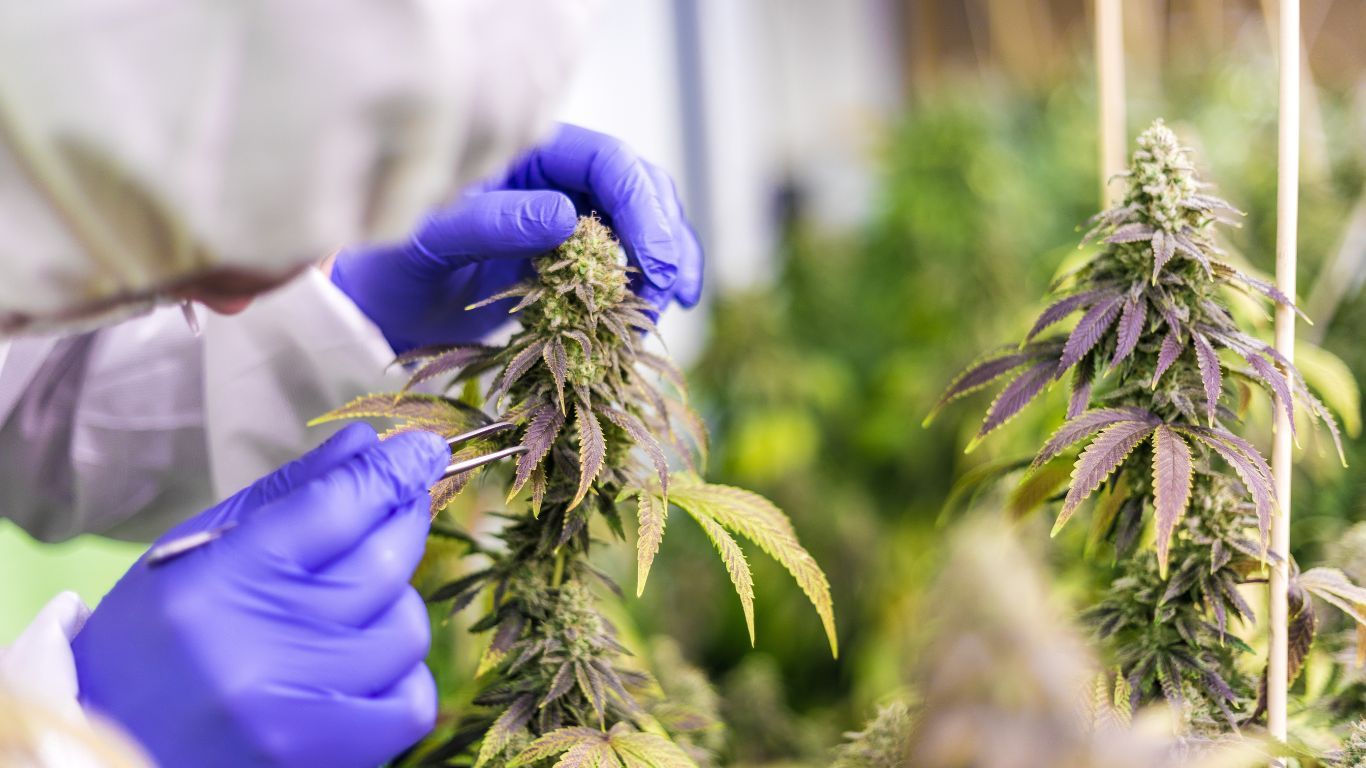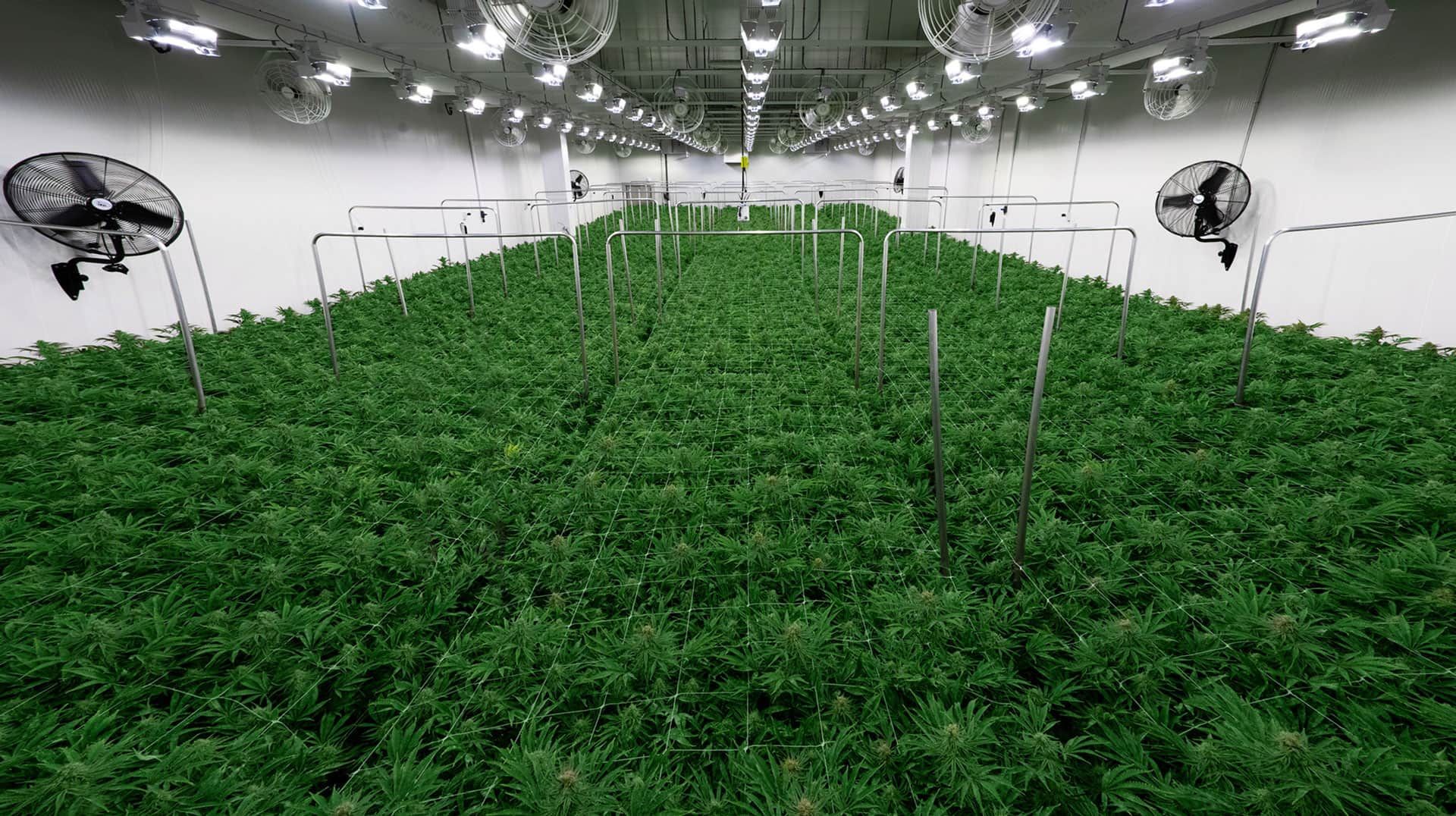
Some outdoor grow operations in BC are feeling the stress of the ongoing stigma against cannabis. Though they have the same challenges as other farmers, they get none of the tax benefits of being deemed agricultural.
“The only thing guiding this policy is money,” says Tyler Rumi, Founder and CEO of Good Buds on Salt Spring Island. “Cannabis farmers are being charged a cannabis tax rate ten times that of other farmers of other crops.”
The BC Ministry of Finance excluded cannabis cultivation from being considered a farming activity in 2018. As a result, cannabis operations don’t receive property or provincial sales tax (PST) relief that is given to other farming activities.
“Our farm should be designated agricultural,” says Rumi. “However, because we grow cannabis outdoors instead of another crop, they hiked our property tax rate from $4,500 to $45,000 in one year.”
The financial challenges also extend beyond taxation and include insurance—which is hard to get, and expensive.
“The only thing guiding this policy is money. Cannabis farmers are being charged a cannabis tax rate ten times that of other farmers of other crops.”
Tyler Rumi, Good Buds
“I suspect we can’t get crop insurance, which is something that regular farmers get access to,” says Alannah Davis, CEO of Dabble Cannabis in Duncan. “We also pay exorbitant premiums for our buildings and machinery. We only got a policy after 17 companies declined to cover us, simply because we grew cannabis.”
Changing the legislation would go a long way toward reducing stigma and creating legitimacy, but that is a slow process.
“My understanding, and from speaking with the Ministry of Agriculture, is that this is not an immediate and easy change,” says Davis. “However, I grow in a field, and harvest out of dirt—how is that not an agricultural product? How different are we from a vineyard? Everyone I know who grows outdoors cares about this, and wants cannabis to be treated fairly, and deemed agricultural.”

The Devil in the Details
The tax situation in BC is complicated by the fact that, although cannabis farming is not exempt from PST, cannabis processing can be considered a farming activity.
“For whatever reason, they have allowed cannabis processing to be PST exempt,” says Greg Kasting, the founder of Cedar Organics, which is located next to Quennell Lake in Cedar, on Vancouver Island. “However, in a processing facility of any type of agricultural product, the simple act of freezing doesn’t fall under the agricultural processing exemption.”
Kasting argues that the fast, deep-freezing of cannabis is a critical scientific first step in processing, as it locks in the plants’ full botanical compounds, especially the highly volatile terpenes. The result is “fresh frozen” and “live concentrate” cannabis products, which are the most accurate reflection of the full living plant.
“I grow in a field, and harvest out of dirt—how is that not an agricultural product? How different are we from a vineyard?”
Alannah Davis, Dabble Cannabis
This is quite different than with other products, which are usually frozen to prevent spoilage, with the processing beginning later. If Cedar Organics were to receive the exemption, they would get a break from significant investments in generators, fuel, and freezers.
“At this point, they aren’t recognizing it,” says Kasting. “However, our argument is that because we are a trichome farm that produces a high-quality live extract, the only way to get that is through fast freezing and storing at -30c—we can’t arrive at our final outcome without it.”
Cedar Organics was also disqualified from a Covid program in BC that provided tax relief, with Kasting estimating that, overall, the refusal to acknowledge outdoor grows as agricultural has increased their tax liability by over $80,000. Part of their challenge is also that their tax assessment has been based on a period of high start-up costs, and doesn’t represent the normal cost of operations.

As it stands, Cedar Organics has been disallowed the freeze processing tax exemption twice, and is now making its third attempt and awaiting final communication from BC’s Ministry of Finance.
And they are not alone.
“We do freeze much of our harvest, just as is often seen in vegetable production,” says Che’ LeBlanc, founder and CEO of Rosebud Cannabis Farms in Salmo, BC. “We don’t see differences in production from other crops that would justify discrimination toward us. The main difference here is the much more involved and strict standard operating procedures. What we are seeing is stigma-based discrimination.”
“We don’t see differences in production from other crops that would justify discrimination toward us. What we are seeing is stigma-based discrimination.”
Che’ LeBlanc, Rosebud Cannabis
Rumi from Good Buds has also pleaded his case to the BC Ministry of Finance to no avail.
“We have made attempts to have our property classified as having been assessed as an operational farm,” he says, “but the province insists on keeping us in a category that allows an extortive tax rate for farmland and a farm building.”
This is all the more remarkable given that last March, during a session of the BC Legislature, the Minister of Agriculture, Food and Fisheries, Lana Popham, clearly perceived cannabis to be an agricultural product and under her purview.
“Licensed cannabis ranks number three in agriculture and seafood commodities produced in BC,” she said, in response to a question specifically asking about agricultural sales. “The BC share of the national amount is 12.8%.”
Featured image of Cedar Organics, located next to Quennell Lake in Cedar, BC












